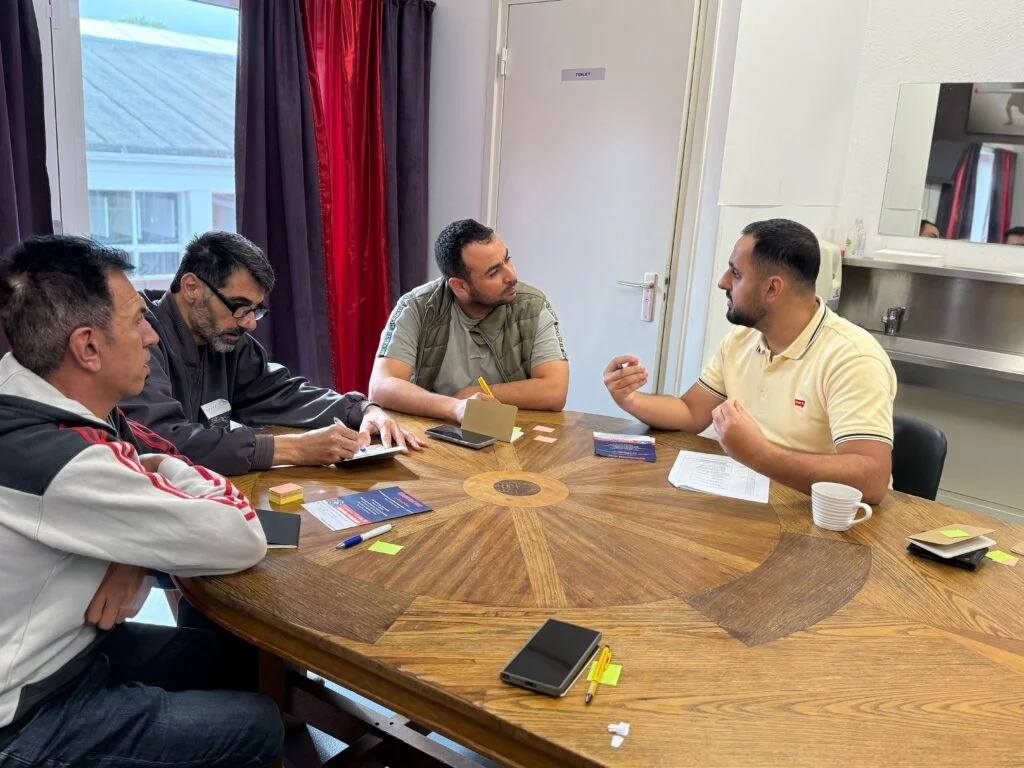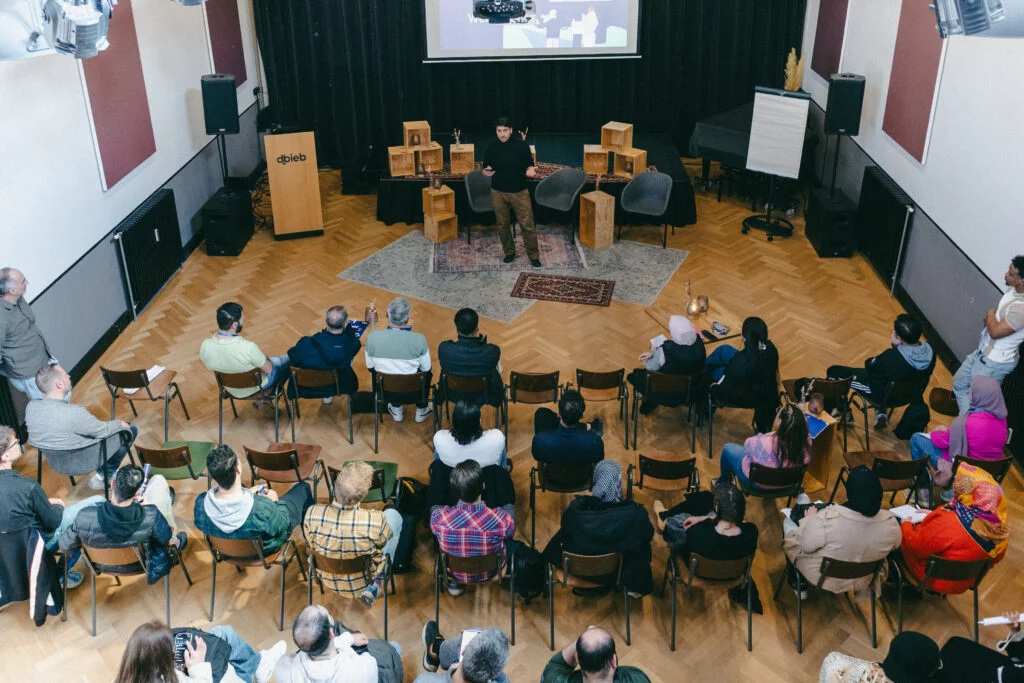Last year, OpenEmbassy conducted action research on long-term solutions to support Ukrainian newcomers. The research helps understand how the system works for this particular group and how policies can be improved. About a year after the war Russia started in Ukraine fully escalated, the Ministry of Social Affairs in the Netherlands (hereafter referred to as the Ministry) published their lessons learned about Ukrainian newcomers in the Netherlands. In the article below, we compare the insights and look ahead to our report, which will be published in March.
By: Pepijn Tielens, Jolien de Vries
Recommendations based on the report
First, support under the Temporary Protection Directive, rather than under the Integration Act, provides an opportunity to see how alternative policies can better support newcomers in building their lives in the Netherlands. A striking example is the immediate right to work, as opposed to government restrictions on asylum seekers and their ability to work.
After eight months, 46% of Ukrainian newcomers were working, compared to 3.8% after one year for newcomers with an asylum permit.
Many of the recommendations below can be adapted for a more humane and effective policy for all newcomers. We share the observation that the ministry reiterates several times that lessons learned should be integrated into policies for all newcomers. As the ministry plans to conduct longitudinal research on Ukrainian newcomers, future insights may lead to better long-term policies. While the insights are becoming clearer, there are no specific commitments yet on what policies for asylum seekers and permit holders should be adjusted. We await this next step in the coming year and are committed to advising accordingly.
Opinion
- Use lessons learned for policy to support all newcomers.
- Take specific actions to integrate these lessons for all newcomers.
Tipping point to structural policy
We are currently at a precarious tipping point as we move from short-term crisis solutions to long-term structural policies to support new arrivals under the Temporary Protection Directive. Research has shown that in the transition from crisis to structural measures, there is a high risk of losing valuable practical knowledge and insufficient involvement of experts on the ground.
The danger is that communities fall apart, the wheel is reinvented (but worse), and informal authorities are not heard and therefore leave, resulting in less effective solutions. In our action research and community actions, we were constantly amazed by the self-organizing capacity of the displaced Ukrainian community.
Many people supported their compatriots as they should be prominent in the months and perhaps years to come.
In addition to community-based initiatives to learn from, local civic initiatives are a vital source of knowledge for making and implementing the right policies.
Such partnerships also include opportunities for funding (through local governments or funding partners) for these initiatives, as they also need to be equipped for the long term. It is good to see that the ministry has learned from communities and local initiatives for policy improvements, although this should be applied across the board.
Long-term solutions Ukrainian newcomers
- Creating an infrastructure through which those who are going to create structural policies learn from those who were involved during the immediate response to the crisis.
- Hiring newcomers, creating a pool of experts and creating new policies with the consent and input of the displaced people.
- Recognize civic initiatives as a vital source of knowledge for making and implementing the right policies.
Long-term work
Granting immediate right to work to Ukrainian newcomers had a positive effect on the number of people joining the Dutch labor force. Again, the shift from short-term to long-term is important to consider. People are likely to shift from easy and accessible jobs to jobs that fit their qualifications, background and ambition. This has also been recognized by the ministry, as the plan is to improve the match between qualifications and a suitable job.
Through us and work in the community, we have identified a strong desire to start a business. Regulations preventing this will be reviewed in the first half of 2023, as the ministry identifies the associated risk of exploitation through false self-employment.
Consulting work:
- Take into account the shift from short-term to long-term jobs by sticking to people's qualifications, background and ambition;
- Allow self-reliance and implement mechanisms to prevent exploitation.
Child care is basis for work
A basic requirement to support people to work is child care. If the current law on child care is amended, there should also be enough room to provide child care for children of newcomers who want to work or integrate. Ukrainian newcomers have mostly used informal childcare, but the ministry wants to promote formal childcare by emphasizing childcare subsidies. This raises the question of how effective financial arrangements will be if waiting lists grow longer and current arrangements are inappropriate. In these times, the self-organizing ability of newcomers should be supported rather than limited by restrictive policies. For example, the concept of "guest parenting" could be simplified and made cheaper to implement. There are also examples from abroad to consider.
As part of the solution, newcomers with pedagogical backgrounds could be employed in child care. It is good to see that the ministry has announced that it is exploring the possibility of creating a pathway for newcomers towards the childcare sector. Finally, employers could also be seen as stakeholders in this issue. A company or a group of SMEs could set up their own childcare centers. With the right amount of safety regulations, there is room between the lines to organize preschools or after-school programs as an informal way of child care.
Child care advice:
- Supporting the self-organizing ability of newcomers through concepts such as guest parenting as alternative solutions to a sector struggling with a labor shortage;
- Bringing newcomers with pedagogical backgrounds into the childcare industry;
- Promoting private child care initiatives set up by employers.
Language facilities
An important aspect in the transition from short to long term is the provision of Dutch language facilities. We recommend that the ministry identify the need for additional language facilities in addition to those offered by municipalities, language schools and NGOs. It is reassuring to see that the ministry has allocated 15 million euros to provide additional language facilities. Especially since they indicate the importance of language related to long-term employment opportunities. Work combined with language learning paves the way for more sustainable and stable employment opportunities that match the experience and ambition of Ukrainian newcomers.
Recommendations:
- Providing additional language facilities related to language learning within a particular context such as the workplace.
You can read more about our findings in our report "Final Report: Action Research Ukraine," which will be published later this month. In this publication, we elaborate on several themes surrounding the support of Ukrainian newcomers. In addition to the themes mentioned above, we present our findings related to shelter and housing, mental health, education and protection of third-country nationals from Ukraine.
Photo by Jason Goodman on Unsplash




